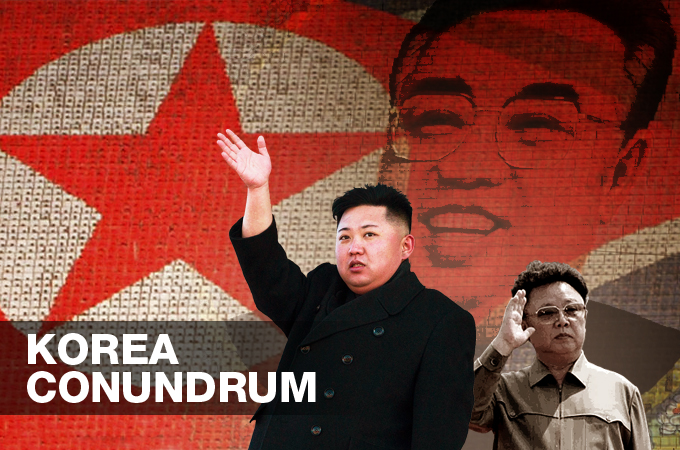Timeline: N Korea’s technology brinkmanship
North Korea’s botched rocket launch focuses renewed attention on isolated country’s technological ambitions.

North Korea’s failed rocket launch on Friday drew international condemnation with critics accusing the communist nation of conducting a long-range missile test banned by UN resolutions.
While Pyongyang said the mission was intended to send a weather satellite into space, the launch focused renewed attention on North Korea’s technology ambitions, including the development of nuclear weapons and ballistic missiles.
Keep reading
list of 4 itemsTurtles swimming to extinction in Malaysia as male hatchlings feel heat
Could shipping containers be the answer to Ghana’s housing crisis?
Thousands protest against over-tourism in Spain’s Canary Islands
Below is a timeline of key dates in the country’s nuclear, space and weapons-testing programmes, and the diplomatic manoeuvrings surrounding them.
1979: North Korea begins building a nuclear reactor at Yongbyon.
1985: North Korea declares the existence of the Yongbyon facility to the International Atomic Energy Agency (IAEA).
1986: The Yongbyon facility begins operation.
1993: North Korea threatens to withdraw from the Nuclear Non-Proliferation Treaty (NPT), but changes its mind at the last minute.
 |
1994: President Kim Il-sung dies and is succeeded by his son, Kim Jong-il.
IAEA inspectors are blocked from running tests at Yongbyon. The US says it suspects North Korea may have produced one or two nuclear weapons.
North Korea signs its first nuclear agreement with the US, saying it is willing to suspend its nuclear programme in exchange for aid and Western help to build light water reactors.
1998: North Korea launches a Taepodong-1 rocket which flies briefly, before plunging into the Sea of Japan. It is initially hailed a success by Pyongyang, but later admitted as a failed launch.
2002: North Korea says it plans to restart the Yongbyon reactor and expels IAEA inspectors. US President George Bush labels North Korea part of an “axis of evil”, along with with Iraq and Iran.
2003: North Korea withdraws from the NPT. Later, North Korea and the US re-start negotiations towards disarmament, known as the six-party talks, which also include China, Japan, Russia and South Korea.
2005: North Korea says it has acquired a nuclear weapon as a “self defence” measure against US aggression. During six-party talks, North Korea says it will re-enter the NPT and end its nuclear programme in exchange for financial assistance.
2006: In July, North Korea launches a Taepodong-2 rocket that breaks up up less than 40 seconds after lift-off.
In October, North Korea says it has carried out its first underground nuclear test in response to US “aggression”. The US Geological Survey measures a 4.2-magnitude earthquake.
 |
2007: A second agreement is reached via the six-party talks which includes North Korea closing down its main Yongbyon reactor.
2009: In April, North Korea claims to have successfully launched a satellite – Unha-2 (Galaxy-2) – an advanced three-stage variant of the Taepodong-2 – into orbit, but the rocket launch is deemed a failure by international observers.
North Korea says it will no longer participate in the six-party talks.
In May, North Korea conducts its second underground nuclear test a few kilometers from its 2006 test site, prompting further UN Security Council sanctions.
2011: The US and North Korea hold talks on taking steps to resume the six-party process. In December, Kim Jong-il dies and is succeeded by his son, Kim Jong-un.
2012: North Korea agrees to freeze its nuclear weapons programme in exchange for food aid from the US.
North Korea launches a long-range rocket – the Unha-3 (Galaxy-3) – despite international condemnation of the move. Pyongyang says the mission is intended to send a weather satellite into space, but critics say the launch amounts to a long-range missile test.
North Korea admits the satellite failed to reach orbit after the rocket disintegrates soon after launch and crashes into the sea. UN Secretary General Ban Ki-moon condemns the launch as “deplorable” and says it is “in direct violation of UN Security Council resolutions.